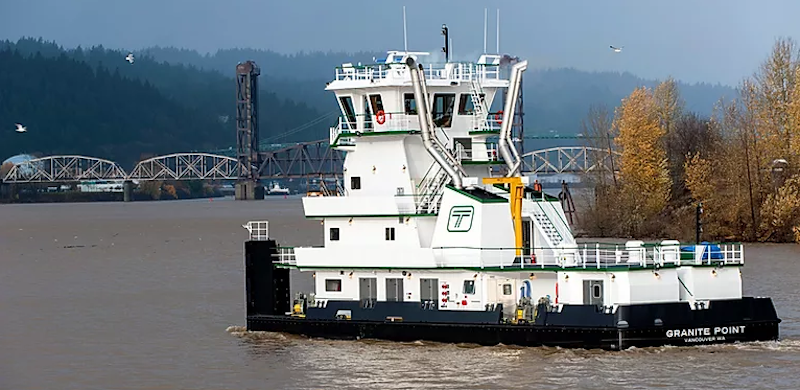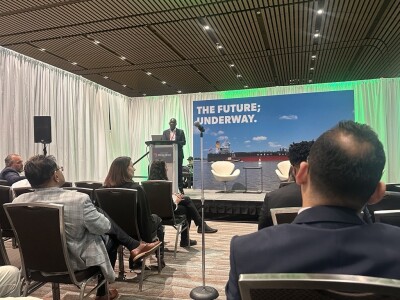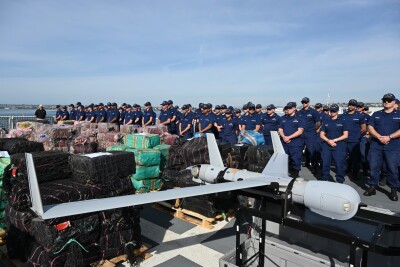As state economies reopen and businesses return to their workplaces, inland barge and tug companies are developing plans to safely return shoreside employees to their office spaces.
Unlike many businesses that have shuttered during the past four months, barge operators, tugboats and towboats are considered “essential” transportation industries and have continued to move commodities along the inland and coastal waterways and the Great Lakes. While the boats are on the water, shoreside offices have been largely closed or sparsely occupied, while administrative and other staffs work remotely.
This is now changing, as companies are reopening their offices under new safety and health protocols that are informed by state and federal guidelines and by approaches tailored to their unique maritime operations.
This was the topic of a webinar held this week by the American Waterways Operators called “Addressing Covid-19: Returning to the Office,” in which several industry officials shared their paths to reopening. Joining the discussion were Bill Collins from Tidewater Transportation & Terminals, Ron Zornes of Canal Barge Company, Jeff Slesinger of Delphi Maritime, and Matt Mowrer of the American Bureau of Shipping.
“Navigating the Covid pandemic and its aftermath, while assuring employee safety, will continue to be one the biggest business challenges of our time,” Brian Bailey, AWO’s director of safety and environmental stewardship, said in opening the webinar, which is part of a new AWO series called “Virtual Summer of Safety.”
Collins, of Vancouver, Wash.-based Tidewater, said his company reopened on June 8 after sending all “non-essential” employees home to work and mobilizing an incident command system that was adapted for Covid-19. The overlying goal of the return to work plan, he said, is to “return to a sense of normal” while being safe and also satisfying the four-phase recovery approach outlined by Washington state.
Tidewater’s reopening plan was a coordinated effort approved by the highest level of company management and built upon the incident command system. A workplace health solutions company run by a group of physicians was hired to help develop the plan using state guidelines. There were 29 different practices that had to be followed, Collins said, such as arranging furniture, changing air filters and distributing hand sanitizer. The health company developed a questionnaire of 10 questions for employees to answer, touching on travel, general health and common Covid-19 symptoms. Social distancing was adapted to the office space, with restrictions on conference room, galley and lobby use, floor markings were added, and limits on how much time workers could spend in a colleague’s workspace were imposed. Use of face coverings are required when not working alone, and presentations were made to inform employees of the new office procedures.
“We continue to look for ways to improve our safety,” Collins said. “There are a few areas we must work on, mostly in shared work spaces.”
Ron Zornes, director of corporate operations at Canal Barge Company, New Orleans, said that like Tidewater, CBC also built its Covid-19 response around a crisis management philosophy, and set as priorities the safety and health of employees, maintenance of business operations as normally as could be done, and returning to offices as a strong organization. “This might seem counterintuitive,” Zornes said, “but we actually used this approach 13 years ago during Katrina, and we’ve actually found ways to make us a stronger organization.”
He said CBC worked with its company physician, accessed Tulane University public health experts, and tapped other medical professionals to get a wide range of options “because there’s no one discipline that has it all.”
CBC also engaged a service from a local non-profit health facility which offered a free walk-through of their offices by a group of physicians and nurses who gave advice on what should be changed. He recommended that other inland barge companies look into similar services in their areas.
About 50% of employees are back working at CBC’s different locations, where high standards of cleaning and personal safety are in effect. CBC deployed a two-part approach that involved “caring for people,” which addresses company responsibilities, and “people who care,” which addresses employee responsibilities.
He said visitors are discouraged at offices, face coverings are required in public places, hand sanitizer use is encouraged as is social distancing. Time sheets are posted in restrooms, kitchens and lobbies documenting the cleaning regiment of each place. Every day employees must self-certify on an app that they are in good health and are social distancing, and strong communications with employees are being followed that also include reaching out to spouses and families through social media.
“We see this as a new normal going forward,” Zornes said. “We’re not basing any of our plans on a certain date when a vaccine is available. We’re focusing on managing what we can control and then maintaining appropriate safeguards in the future.”
So far, the new normal is working well and has been successful in keeping infections low. He said CBC has had less than 10 positive Covid-19 infections among nearly 1,000 employees working at multiple locations.
A recording of the webinar can be found at: https://www.americanwaterways.com/summerofsafety





